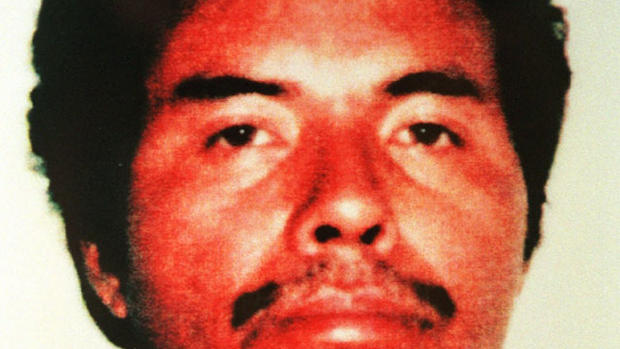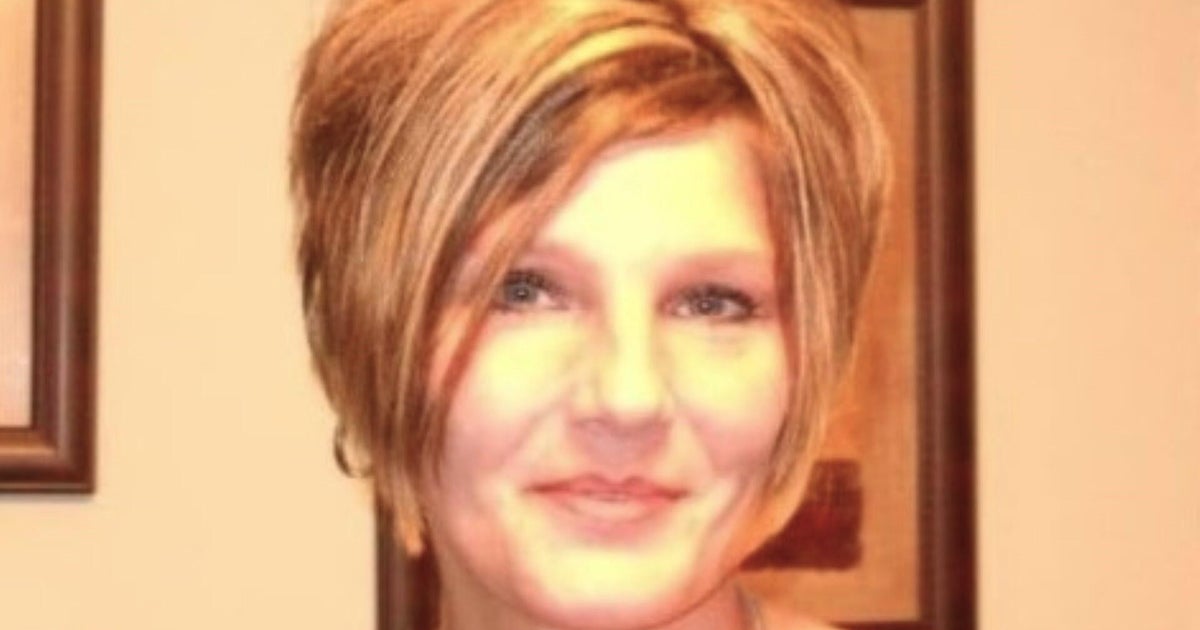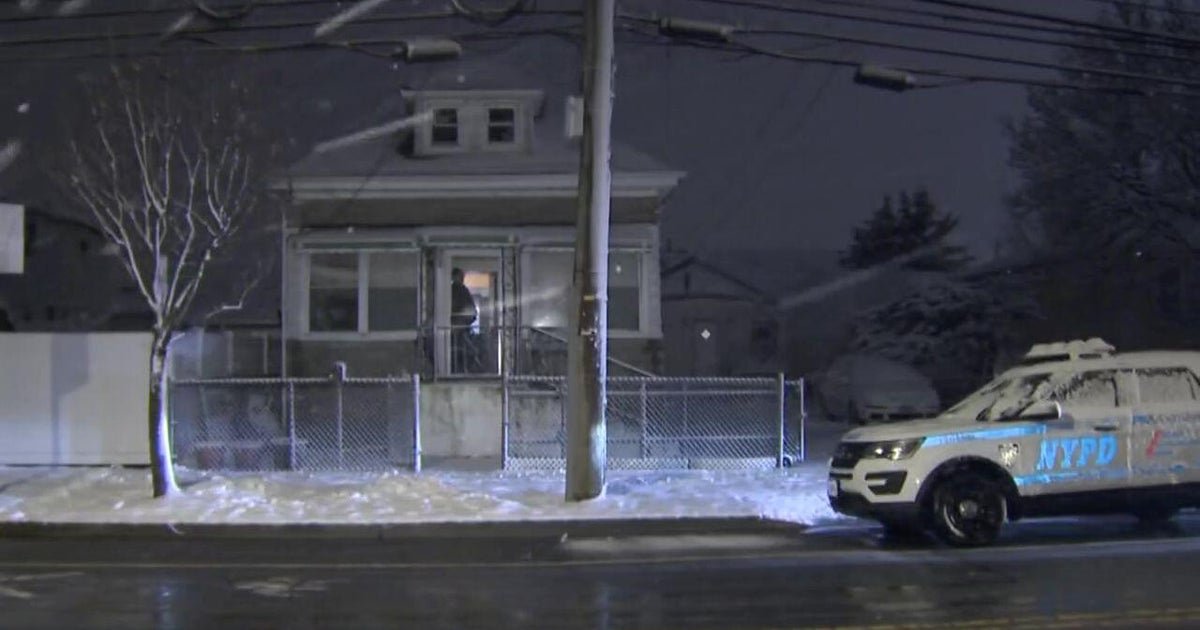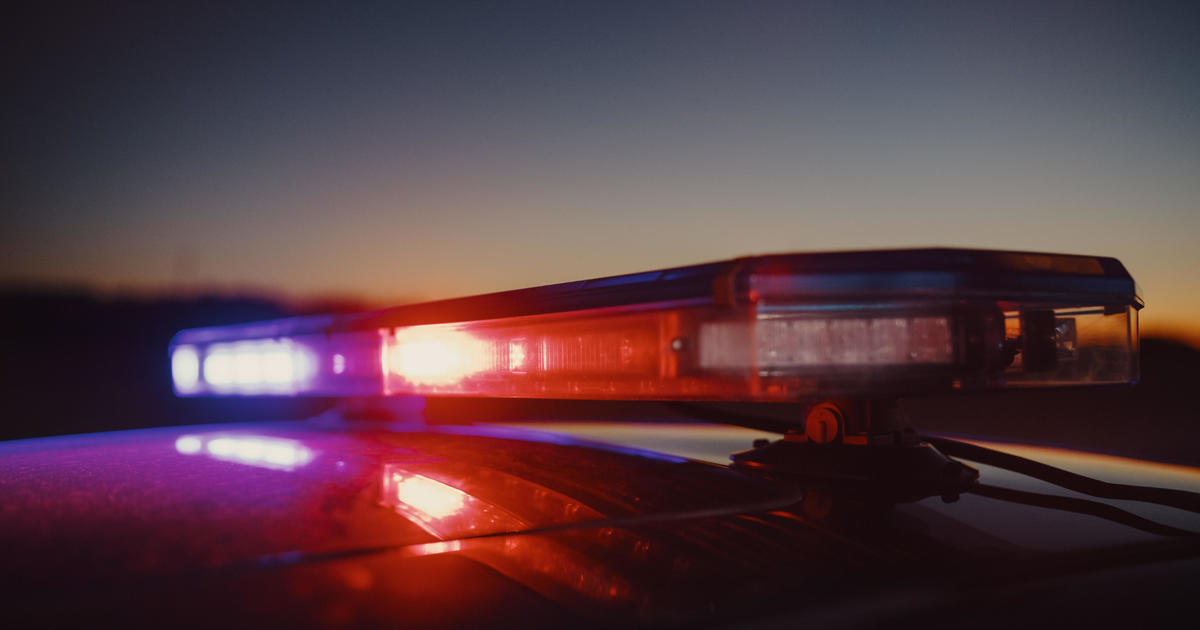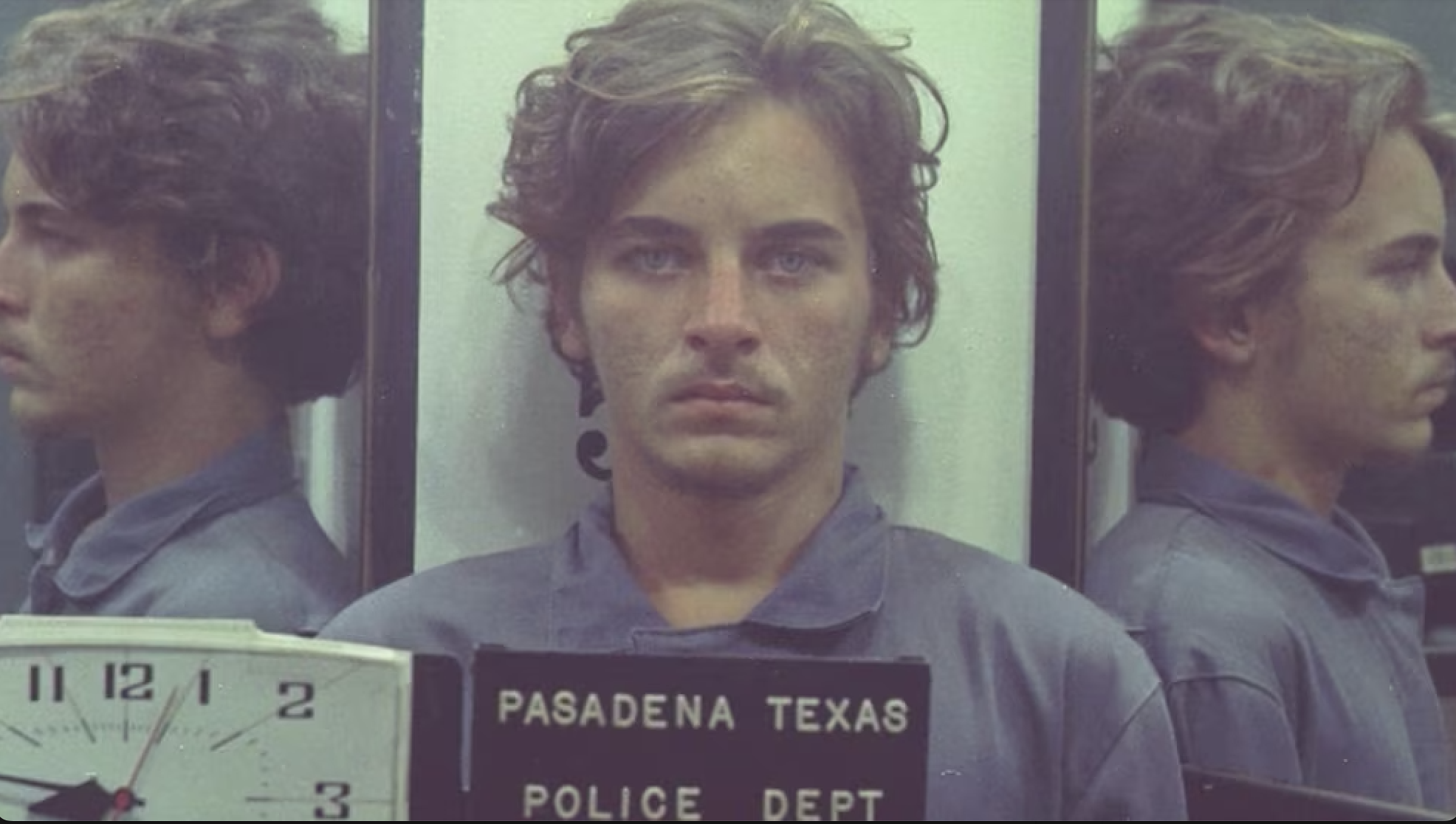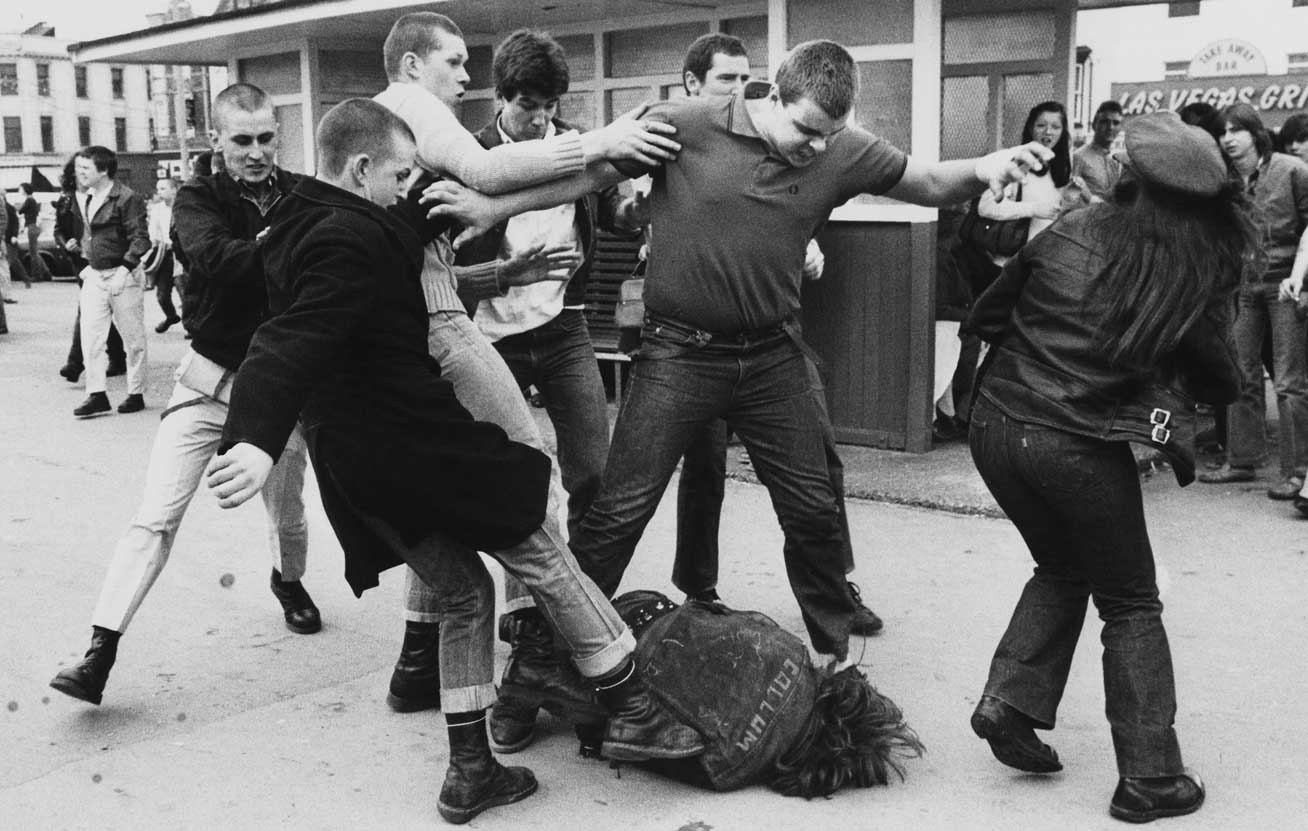Sole survivor of "Railroad Killer" Angel Maturino Resendiz speaks out
Produced by Lourdes Aguiar and Michael McHugh
[This story previously aired on Sept. 9, 2011. It was updated on Aug. 3, 2013.]
What if someone wanted you dead ... but you lived to tell?
At age 20, college junior Holly Dunn came face-to-face with an infamous serial killer who earned his nickname by choosing victims along the railroad tracks. After being raped, beaten and stabbed, Holly somehow found the will to survive. She would learn that her attacker was responsible for a multi-state killing spree. The race was on to find him before he killed again.
Heather Dunn Niemeier, Holly's sister: I began writing as a process of healing. ...The writing, I found, really helped me deal with what had happened.
Heather reads: "Since as far back as I can remember, I've had the same dream. I'm running. I was constantly running away from someone. We lived on 13 acres. So, I could never get someone to hear my screams or run fast enough. I would run down the hill of the front to our house across the fields.
There were many mornings that I would wake up after a night of running all night in my dreams. But, then run down the stairs to play with my younger sister. We had a great time growing up together. We had that special bond that you hear people talk about. We were so close.
[Aug. 29, 1997] I didn't get to hear the answering machine until I got home that night. ...I remember there being an oddly high number of calls. But three of the messages were from my dad.
The room was dark and she woke up [at University of Kentucky Medical Center]. She was lying on her side and I put my head to her face and just held her. It was there that she told me the worst story that I had heard in my life. Maybe this is what I had been running from in all those dreams as a child - this horrific story that happened to my sister."
Holly Dunn, Heather's sister: In late August 1997, I was a student at the University of Kentucky. It was about the second night of classes. It was a Thursday night. And I went to a party with my boyfriend, Chris Maier, not far from campus. It was a little bit boring, so we packed up Chris' backpack with some beers, and we were gonna head down to the tracks.
We sat there and talked for a while, I'm not sure how long, but we got up to leave and go back to the party. And we started walking along the tracks. And when we got to an electrical box beside the tracks a man came out from behind it. He asked us for money. We of course said, "We don't have any money, we're poor college kids".
And I don't know if it was an ice pick, if it was a screwdriver, but he had it on Chris the whole time. He asked Chris to get down on his hands and knees... He went through his backpack and didn't find anything that he wanted. And I didn't realize it, but he was tying up Chris' hands with the backpack... behind his back.
And he took off my belt and tied up my hands behind my back with my belt. And he actually pulled Chris from the tracks, on the gravel, into the grass beside the tracks. In my head, I was panicking. And I was like saying my last prayer. And thinking, "I'm going to die."
Holly Dunn: It was very dark and you couldn't see very well. So it was very startling to see someone come out that was crouched behind an electrical box.
Chris and I were looking at each other I think in disbelief that this was actually going on. Like, we were looking at each other very confused. Like, "What in the heck is happening?"
You know, I remember saying, "Why are you doing this? What do you want? Do you want credit cards? ATM cards? You can have our car it's just parked down the street." You know, we were just trying to figure out what he wanted.
And, at this point, our attacker ripped a shirt. And he gagged us. I actually stuck my tongue out so that the gag wouldn't work. It just fell off.
We had split seconds in where - our attacker would go back up to the tracks and we were down in the grass. And so, we could talk to each other, and... Chris and I started strategizing, you know, saying, "OK, should I run? Can you get untied?" I got my hands untied. I couldn't get my feet untied. I ripped Chris' gag off of his mouth. And so, we were talking to each other, trying to figure out how we were going to get away... Because Chris kept saying, "You know if you can get yourself untied get away, run away." Because he couldn't get - his arms were all tied up in his backpack. And he couldn't get untied.
And I really don't know how much time passed before our attacker came down carrying a rock. ...and he came over and literally just dropped it on Chris' head.
I think, at that point, I went into survival mode. I, you know, to see him drop this rock on Chris' head, and... He climbed on top of me. I realized, at that point, that he was going to rape me. I fought him. I tried to hit him. I tried to kick him. I tried to scream. That's when he took that weapon that he had, and he held it to my neck and he said, "Look how easily I could kill you." That's when he stabbed me in my neck. And so, I just stopped. I was like, "Okay, well, you know, what's gonna happen is gonna happen."
I was staring at every scar he had, every tattoo he had. I was thinking, "Let me remember everything about you that I can, because we'll get you at some point."
And I tried to rip off my fingernails and dig in the dirt so that if I was taken away, someone would know that I had been there. I started saying, you know, "What are you? Where have you been? What do you need?" You know, "how can I help you?" You know, "I really have a family that wants to see me again." I said, "Do you have friends? Do you have a family?"
I was begging him, "Please don't hurt me." You know, "I will let you go. I won't tell anybody what happened here, just don't hurt me."
That's when he started hitting me. I don't remember being hit. I was hit with some sort of wooden board. ...I think I put my hand up to block it. But I was hit five or six times in the front of my face and then, I turned over, and I was hit five or six times in the back of my head. I'm positive that he probably knocked me unconscious. And ... my breathing was shallow enough that he thought he had killed me.
I don't know how long I laid there. But, at some point, I got up, and I realized that he was gone. I knew that I was injured. I knew that I was hurt. I don't think I knew what my injuries were. I realized that my mouth wasn't shutting right. And I was covered in blood.
I walked about 200 yards or so ... maybe on the rocks along the tracks.
Chad Goetz, University Senior: It was - probably 1:00, 2:00 in the morning. It was between 1:00 and 2:00. I was sitting in my chair, studying. And out of the corner of my eye just glimpsed something go across the front yard. She was covered in blood from head to toe. And I could not figure where all the blood had come - was comin' from. ... Her face - it looked like a boxer whenever they - whenever they get cut during a boxing match. At that point, I brought her in and set her down on the couch. And she collapsed on the couch.
I thought she was going to die. There was no doubt in my mind. And she started - I kept losin' her a little bit here and there. And I just kept talkin' to her 'cause I definitely didn't want her to pass out, ya know, I was just trying to keep her awake until the paramedics got there.
Holly Dunn: And I did keep saying to him, "My friend's still out there. You know, like, "be sure they know my friend's still out there. My friend's still out there."
Det. Craig Sorrell, Lexington Police Dept.: On Aug. 29, 1997, I received a call at home about 3:00 in the morning that there had been an attack on two students along the railroad tracks. My lieutenant asked me to come out and said it was a bad one.
Another detective and I were sent over to the University of Kentucky Hospital to check in on the victim. On the way, we learned her name was Holly Dunn.
Heather Dunn Niemeier, Holly's sister: Her face was disoriented. She had a broken eye socket, a broken jaw. And, so, her face looked off. It was very bruised - lots of cuts across her face. And then, of course, staples of where they could - just to stop the bleeding. They couldn't even, you know, cut her hair. They just stapled on top of her hair.
And even in that state of her looking the way that she did, I can just remember this feeling of overwhelming gratitude and love that she was alive. Just feeling so thankful that she was alive and that she was there. ... I have felt so guilty to not be there, to know that your sister is begging for her life. She is begging someone for her life, and you are... you're sleeping.
Holly Dunn: I remember they weren't talking about Chris. And, eventually, I asked my dad, I just said "Chris is dead, isn't he." And my dad was like, "Yes, he is." It was very hard to accept the fact that I lived through this and Chris didn't. And, you know, it was just - I just felt like it wasn't fair. It's not fair that - that I'm still alive and that Chris isn't.
Chris was so friendly... he was very laid back and down to earth... he loved the outdoors, he didn't have a care in the world.
I couldn't attend the funeral. I was really upset about that only because I really wanted to attend I never really got the chance to say goodbye and ... I wanted to have that chance to have some peace.
Det. Craig Sorrell: Despite her - state, she was ready and willing to try and communicate what had happened to her.
Holly Dunn: I was really trying to remember every detail about my attacker. And I remember hearing his accent, thinking, "that is a Mexican accent."
Det. Craig Sorrell: Holly described the suspect as a male, possibly Hispanic. Five six, five eight in height. Kind of a wavy, black hair, wearing glasses. She said that - he wasn't muscular, but he seemed somewhat wiry.
Holly Dunn: They repaired my jaw. They actually kind of just realigned it. And wired my mouth shut. And really that was the only thing that they could fix. The broken eye socket, there was nothing they could do. As soon as I could get the surgery to get my jaw wired shut and my jaw fixed, my parents took me home.
I definitely think that there's parts of me that wanted to retreat away. Right after this attack happened, I just wanted to lay in bed and not get out of bed again. But, you know, there's always something that's pulled me out of that.
My sister was my rock throughout this entire process... And she doesn't - maybe didn't even realize how much she was helping me by what she was doing.
Det. Craig Sorrell: We received a lot of phone calls and a lot of tips, and we followed up on a lot of people who thought they had seen this person. We were able to establish - that we had a DNA sample of the suspect - from the rape. The sketch was the best thing we had and the DNA evidence, of course. And then we also entered it into the National Database for Violent Offenders... in the hopes that maybe someday down the road - there would be some similarities to other cases that I could become aware of to try to track this fellow down.
14 MONTHS AFTER THE ATTACK
Drew Carter, Texas Ranger: In December of 1998, a doctor was murdered in the Houston area.... She had suffered both stab wounds and blunt trauma to the head. And she was also the victim of a sexual assault. And then, a pastor and his wife were killed in Weimar. And the pastor and his wife were murdered in their bed with a sledgehammer that was found in a tool room there at the house.
When we first started working it, we approached it from the standpoint of a fugitive investigation and that was trying to learn as much as we could about the subject at hand. We knew that we had forensic evidence, we had fingerprint evidence that linked to a particular suspect and both houses were in the near vicinity of railroad tracks.
Det. Craig Sorrell: Somewhere around May or June of 1999, I got a call from ViCAP, which was the national database that we put the info in. Get a call from them saying, "Listen, we've had another homicide near railroad tracks in Texas." It was a loose connection at best... But it was near railroad tracks. And after two years, we hadn't had anything of substance anyway, so we chased any lead.
Drew Carter: Detective Sorrell called and we compared details about the cases. And realized that we not only had a serial killer that was within 150 mile radius of Houston, but we had one that was in other states as well.
Det. Craig Sorrell: They were able, through fingerprint analysis, to have a suspect. The suspect at that point had been identified as Rafael Resendez Ramirez.
Drew Carter: The majority of his attacks were by surprise. Often the people were in bed asleep when he was getting 'em. So he's like the boogeyman coming into your house. He supports the fact that true evil does exist in this world.
Holly Dunn: To know that he was doing it again, that he was more violent, that he was killing more people. That he was doing it over and over again. ...I started to feel like, "Wow, this is a lot bigger than me." It was almost like my worst nightmare coming true.
Det. Craig Sorrell: And that was when the ball started rollin' and it became a national serial killer manhunt. We were driven. We had to catch him before he killed somebody else.
Det. Craig Sorrell, Lexington Police Dept: We knew then we had a serial killer on the loose. We knew that he was extremely violent. And we had no information as to where he was. Our last clue was Texas. So it was an all out race then to try and figure out where he was and get hands on him.
So everybody went to Texas.
From what I've come to learn of Resendiz, he was an immigrant, transient, moved around, had done a lot of odd jobs... migrant work. He was prone to violence at least 20 years prior to this killing spree.
Drew Carter, Texas Ranger: He was nicknamed by the media as "The Railroad Killer." And he got that moniker just by the fact that most of his murders happened in and around railroad tracks and that that was a mode of transportation that he used to travel across the country.
Local news report: The dragnet for the suspected rail riding serial killer now stretches from Ohio to the Mexican border.
Det. Craig Sorrell: As part of the search, there was actually a huge operation to stop trains. A bunch of Texas agencies participated. We had helicopters in the air to fly over various train tracks. ...If they saw somebody, we'd get the train stopped, check the train - stop anybody and identify anybody on it.
Devon Anderson, Harris County Prosecutor: The sense of urgency was - it was unbelievable because people were dying.
He was continuing to kill. And he was killing effortlessly. No one was stopping him. He killed two women in one day, 90 miles apart. Four days later, he's in a different state. People were scared.
FBI press conference: We are here to announce that Rafael Resendez Ramirez has been elevated to the FBI's Ten Most Wanted List.
Holly Dunn: I just got really scared, because it - it got so big. And they still couldn't find him. They didn't know where he was. And that - that was, you know, a very scary time, because I just - I felt - I knew that he knew I was still alive. I felt that. So, I was afraid. I thought he would come back and get me.
I was so scared that I had to get out of the country. I signed up that day to go to school in England.
Det. Craig Sorrell: The FBI, all the local agencies, the different areas, everybody was running leads. So the volume was huge, and you just started piecing the things together. But truthfully, the tip that made the case was a call from a family relative to "America's Most Wanted."
Drew Carter: And based on information from that phone call, it led us to go back - to go to New Mexico, to speak with his sister.
She hadn't been in touch with her brother but she had been in touch with someone that was in touch with her brother. And that's where we started the discussions about Resendiz and the fact that he was tired ...and that he might be willing to surrender.
Devon Anderson: She became the liaison between United States law enforcement and the serial killer.
Drew Carter: I believe that his options were limited. ...This man had no friends. I mean he was a loner, he had a high price on his head and he had an entire nation, really two nations, looking for him. And I think the - amount of pressure that was put on him, ultimately led to him to have to make a choice.
TWO YEARS AFTER THE ATTACK
INTERNATIONAL BRIDGE, U.S. - MEXICO BORDER
Devon Anderson: It was early in the morning, and Drew was on one side of the International Bridge, waiting. I mean, on the Texas side. And not knowing, I assume, whether he was gonna show up or not, if he was gonna show up armed. I mean, who knew?
Drew Carter: And so then, you know, the doubt sets in. Like, all right, you know, is this gonna happen? An amount of time passed, and you see a pickup truck drivin' up, drivin' across the bridge. And there's three people in that ol' pickup truck. And the center passenger, I immediately recognized as Resendiz. And that's kinda when I thought to myself, "Man, this is really gonna happen."
Resendiz surrendered to Texas Ranger Drew Carter and other law enforcement on the International bridge in El Paso. He was transported by the Rangers back to Houston to face charges.
Devon Anderson: I closed the door and started crying because I was so relieved there wasn't ... I don't want another case to prove up. I don't want another dead body.
Drew Carter: At the time of his arrest, Resendiz was linked to six murders in Texas, two in Illinois and one in Kentucky.
Det. Craig Sorrell: For two years we had operated under the belief that his name was Rafael Resendez Ramirez. We learned that he had a variety of names. But ultimately it was determined his name was Angel Maturino Resendiz.
Devon Anderson: And I had been waiting to see this guy. So when they walked him in [to the courtroom] it was a great moment, but he was so scary. He was a little guy. But wiry and strong, ropey muscles on his arms and curious. He would look - he'd look at everybody in there. He'd looked at me. And there is nothing there. There was nothing there. No humanity. No emotion. It's like somebody took a black magic marker and colored his eyes. They were flat black and expressionless face.
But I just buckled down and just decided - it's gotta be about the victims. And it's gotta be about gettin' this guy dead. Honestly. It's gotta be about convincing a jury to give him the death penalty, because he so richly deserved it and earned it.
Holly Dunn: And I knew that I was going to testify. I had always wanted to do that.... I just wanted the chance to tell what had happened to us. And that was my chance.
Devon Anderson: And I wish I could've seen his face when he heard that someone was living. I wish I could've seen his face when he knew she was comin' to testify against him. I just would love to know what he - what he thought when he found that out.
Holly Dunn: I don't have things that I think about all the time. ...I can't forget about Chris being hit... the rock hitting him. That really is probably the part that I try the hardest and can't forget.
Devon Anderson: She was definitely our star witness. She was our only living witness. Nobody else could speak out against him in first person. "This is what happened to me. This is what he did to me." We didn't have anybody else.
Trial started in May of 2000. It was held here in Houston.
He was so different at trial. I guess sitting in jail he got fat, he got the jail house pallor, had grew his hair, greasy.
There was not a shred of humanity about this man. He did not deserve to live among us. I wanted to put him down.
Local news report: Resendiz faces capital murder charges in the stabbing death of Dr. Claudia Benton.
Devon Anderson: [Dr. Claudia Benton] had been sexually assaulted, stabbed, beaten in the head. He was only charged with one because that's all you need to get the death penalty.
He ultimately pleaded not guilt by reason of insanity. The evidence was overwhelming as to his guilt. ...So that was really his only out - was the insanity defense. We knew we were battling with the jury not wanting to believe that someone could do these horrible things to people and be sane. ...A lot of people did not want to believe - you have to be crazy to do that to someone. You have to be crazy.
The jury reached a verdict after many hours of deliberation. It was pretty - nail biting... But they worked through the evidence. They saw all the indications that he knew what he was doing was wrong, and then they ultimately convicted him of capital murder.
Holly Dunn: I actually got involved in the penalty phase of the trial, so that's when they say whether he gets the death penalty or life in prison.
Devon Anderson: I knew I wanted Holly to testify last. So by the time she took the stand, the jury had heard the gruesome details of all the other murders we had solved at that point. It was a horror show. Heads beaten to a pulp. Knives put all the way through the body, that's how much force was used. Just horrific violence.
Det. Craig Sorrell: We were the last of the cases presented. I testified as to the evidence at the scene, presented the pictures... And then, lastly, Holly testified as the only surviving victim.
Holly Dunn: I flew into Houston with my family the night before I was going to testify. And I woke up during the middle of the night screaming and crying.
I talk about the trial as the hardest day of my life. ...What I was most worried about, I think, was seeing him again.
Devon Anderson: I cannot imagine the amount of courage she had to marshal to come into that courtroom to walk in and face him.
Holly Dunn: [Devon Anderson] told me, "Don't look at him. Look at me. I'll be right in front of you. You know, look at your family. They'll be right behind me. He'll be off to your left. Just do not look at him."
The first question that the prosecutor asked me on the stand was "What did you do last weekend?" And so I was like, I graduated from college. ... It felt good for me to be able to say, you know, I graduated from college ... in front of the guy who basically could have ruined my life and destroyed it. And not that he cared, because I don't think he did.
For me to be able to say, "You didn't destroy me." Like... "I'm still here. I'm still strong. I'm still, you know, the same person I was" - it felt good. It felt like I'd finally had my chance.
I told all the details of what I knew, what I remembered. And, you know, cried through the entire testimony... I was crying - all the jury was crying. I don't even remember exactly what I said or how long it took.
Det. Craig Sorrell: Sometimes you don't always have the human picture, the actual human suffering. Because there's no victim to stand in front of you to tell you what they experienced, what they went through. Holly gave that to Chris and all the others that had been murdered. She was able to give a real-life person - to give them a real feeling of the brutality of this man.
Holly Dunn: They got to the moment in the trial when they say, "Is the person who attacked you in the courtroom today?" I hadn't looked at him yet. I knew he was there. I said, "Yes."
Devon Anderson: I wanted it to be the last thing that jury heard and the last thing they saw was Holly Dunn sitting on that witness stand saying, "That's the man."
Holly Dunn: They said, "Well, could you tell us what he's wearing?" And I turned and looked at him. It was surreal. I said, "He's wearing a white button-down shirt." And they - I mean, I literally - I felt my hearing going into my head. He had like this smug look on his face. And I mean, I was so close to fainting when I looked at him again that I mean - I don't know how I didn't.
Devon Anderson: It was devastating. And it was the best part of our case... I mean, she basically, from his perspective, came back from the grave - to nail him.
The jury did find that he was a future danger to society. So the judge sentenced him to death.
Holly Dunn: I felt, I guess, relieved. I mean it just felt good to know that he would never be able to hurt anyone ever again.
Devon Anderson: After the trial, Resendiz was sent to death row in Huntsville, Texas. He was not tried for any other crimes. He had gotten the ultimate penalty. When the last appeal was denied, he was put to death in June 2006.
Holly Dunn: I chose not to attend the execution because Resendiz represented all those angry feelings that I had. And I decided to stay with my family, be surrounded by my family. I had already seen one person die in front of me and I did not need to see another.
Devon Anderson: I read an account of the execution, and it said that right before they injected him, his feet were shaking under the sheet. And I hoped that he experienced some of the fear - that Holly did. That gave me a small sense of satisfaction, that he was scared.
Holly Dunn: I definitely feel like I have another opportunity at life. I wanna live it to the fullest.
I can't explain how this changes you. I'm a stronger person because of it. My whole life focus changed because of it. I'm a different person today because this happened. I knew that I had to heal physically first. And then I had to heal. I had to deal with Chris dying. I had to deal with myself almost dying. And then I had to deal with being raped.
Your brain works in amazing ways and it kind of sort of let me deal with each thing as I could.
In 1997, I met Jacob Pendleton at the outdoor store that I was working at. He was the first guy that I dated after the attack. And he just, like, reintroduced me to the world.
[Emotional] I don't think Jacob even knows like how much he helped me ... by just listening to me. There'd be days that I would literally cry to him. And, you know, be upset. And he would just listen to me. And, you know, really wouldn't judge me at all, which was great.
Heather Dunn Niemeier, Holly's sister: To see Holly happy, married is wonderful. She has led our family in how we have recovered from this and it could have gone a completely different way where our family was devastated by this, but instead, we are so happy for how she's led her life.
Holly Dunn: I started speaking about two years after the attack. To me it felt like part of my healing process to talk about it, and to cry about it and to be emotional, because for so long I had to kind of detach emotion from it...
When I was speaking, I didn't have to worry about that. I could work through my emotions and that really helped me in my healing process.
Being a survivor is one thing, but helping other survivors and knowing how to do that in a professional manner was another thing.
Holly's House is a child and adult advocacy center that provides a safe reporting location for victims of intimate crimes. It's a nonprofit center in Evansville, Ind. We opened on Sept. 2, 2008, and we have served over 300 victims since that time.
Holly's website
Learn more about Holly's House
Devon Anderson: Holly is a hero because she did not let what happened to her destroy her. But she did the opposite. She decided to make it her reason to live. Or her reason to help people.
Holly Dunn: It's important to me for victims to be supported. For them to know that they're not alone. That they're not going through what - what has happened to them alone. I get support through victims that come through Holly's House. I feel like through helping others they're helping me.
Det. Craig Sorrell, Lexington Police Dept.: This case for me has become one that I have looked back on many times. I keep a little bit of a reminder on my desk. A rock from our crime scene and a railroad spike that I got from down in Texas. ...Not so much as a reminder of the largest case I worked, but more a reminder that if you stick with a case and follow up on everything that you can be successful. So be determined. Don't give up.
I've stayed in touch with the victim, Holly, since it began. She's really just an amazing person individually. She is the model of survivor.
Holly Dunn: I remember Chris in a lot of ways. I like to keep things around me that remind me of him. I'm lucky enough to have my amazing husband and have Chris be a part of our lives.
I think to get over my survivor's guilt that I had, I had to know that I lived my life not just for me and not just for Chris. I'm living my life for all of Resendiz's victims, for all of them... And that I have to - or I want to - be the best person I can be and live the best life I can, because they didn't get that chance and I did. So I want to live for them. I want them to be remembered. ... and what I would want for them is to be proud of, you know, me.
By the time of his execution, Resendiz was linked to at least 15 murders in six states.
In July 2012, Holly and her husband welcomed a baby boy. William Christopher is his name, in honor of Chris Maier.
